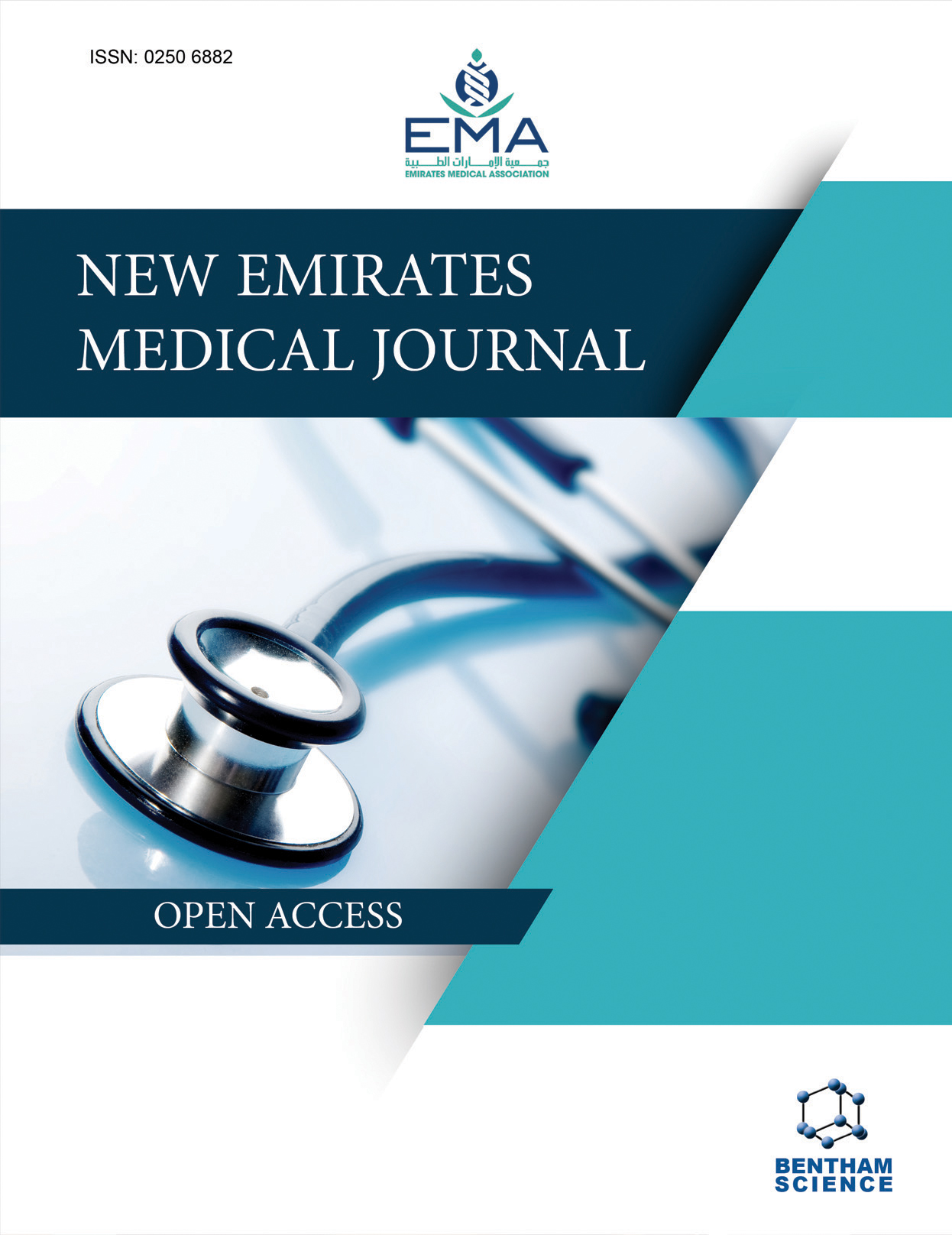-
oa Emotional Intelligence Levels among Nursing Students at RAK Medical and Health Sciences University, United Arab Emirates
- Source: New Emirates Medical Journal, Volume 5, Issue 1, Jan 2024, E02506882330415
-
- 10 Jun 2024
- 13 Nov 2024
- 01 Jan 2024
Abstract
Emotional intelligence (EI) plays a pivotal role in the effectiveness and efficiency of nursing students in their academic and professional pursuits. EI levels differ across academic years and tend to increase with age, often being higher in female students.
This study aimed to assess the EI of RAKMHSU nursing students in the UAE.
This descriptive cross-sectional study used the Schutte EI Scale to assess the EI of 214 undergraduate nursing students. The Schutte EI Scale is a five-point Likert scale comprising 33 questions that yields scores between 33 and 165, including reverse scoring for three questions. Data were analysed using IBM SPSS Version 25.
Approximately 82.7% of the study participants were female and 91.6% were unmarried. The age range of the participants was 18–22 years. Scores of 33–77, 78–121, and >122 on the Schutte EI Scale were considered low, moderate, and high, respectively. No differences were found in the average EI scores of nursing students by academic year. Overall, 68.15% of the students had high EI, 23.83% had moderate EI, and 7% had low EI. The study found no correlation between the EI scores and demographic factors. All EI domain scores except those for emotion perception were consistent between first- and final-year nursing students.
The study showed that many of the nursing students exhibited high EI, which is essential for communication, patient care, and professional development. Further, demographic parameters, including age, gender, and academic year, did not significantly affect the EI scores, suggesting that EI in this cohort of students was stable. Most students demonstrated strong EI, although the perception of the cohort could be improved. These findings highlight the need to integrate EI training in nursing universities to improve students’ emotional abilities, thereby improving patient outcomes and the nursing profession.



